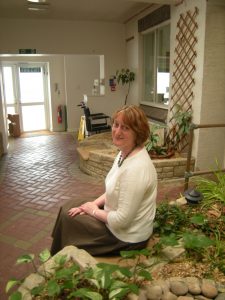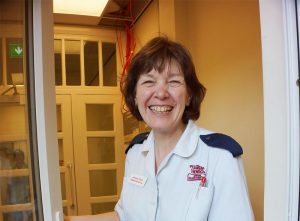 Earlier this month I wrote how the health editor of a national newspaper accused care homes of subjecting residents to abuse and cruelty, ‘from which many will die.’ He referred to the ‘appalling tragedy of the elderly and vulnerable kept apart from their loved ones for months by the Covid rules.’ ‘Of course,’ he added, ‘those most vulnerable to Corona shouldn’t be exposed unnecessarily. But many will die as a direct result of these measures. And it will be a horrible, drawn-out and lonely death.’
Earlier this month I wrote how the health editor of a national newspaper accused care homes of subjecting residents to abuse and cruelty, ‘from which many will die.’ He referred to the ‘appalling tragedy of the elderly and vulnerable kept apart from their loved ones for months by the Covid rules.’ ‘Of course,’ he added, ‘those most vulnerable to Corona shouldn’t be exposed unnecessarily. But many will die as a direct result of these measures. And it will be a horrible, drawn-out and lonely death.’
Clearly, those most vulnerable to Covid shouldn’t be exposed at all, and there is no evidence of care home residents dying such ‘a horrible, drawn out and lonely death.’ Speaking with the editor of ‘The Carer’, a well-known magazine in the care sector I asked if he knew of anything like this. Of course he didn’t, because it’s simply not true. But sadly, he said, ‘it’s stories like this that people seem to want to read.’ (We know our homes are the best, but there are excellent ones out there!)
The health editor didn’t mention that without Covid measures, the coronavirus would sweep through care homes and death rates would rocket. Care homes are not institutions, they are family spaces for residents who are physically frail and need help with their daily acts of living. They have been put into the ‘shielding’ category by the government.
Now Amnesty International has launched a new campaign calling for a full independent public Inquiry into the pandemic, with an interim phase starting immediately focusing on older people in care homes. It asks the government to, ‘ensure that guidelines for care home visits put the best interests of the residents at the centre and that restrictions are based on individual risk assessments, taking into account all possible risk-mitigating measures – such as more frequent testing for care workers, residents and visitors.’
The first and foremost ‘best interest’ for residents is to ensure that they aren’t exposed to the coronavirus. An instant solution to the problem would be a test that could be applied on the doorstep that would tell care staff whether or not a visitor was carrying the Coronavirus But right now there isn’t one, so residents have to be separated from the risk.
It also begs the question – how would a relative feel if it were found that he had taken the virus unknowingly into the home, and that it had affected residents and some had died as a result?
Amnesty International also refers to the ‘abuse’ of blanket DNR orders. DNR means ‘do not attempt to resuscitate’, but the organisation doesn’t seem to understand what the procedure means for a fragile, older person. Dr Jim Crawfurd, an A & E Consultant with more than 15 years experience dispels some of the myths in his blog at https://www.jpaget.nhs.uk/patients-visitors/cardiopulmonary-resuscitation-(cpr). He explains that it is not suitable for everyone. ‘ Most people’s experience is from seeing it on TV played by actors, that makes it look less unpleasant and shorter than it is in real life. In reality it is an assault on the body and there is only a 20% survival rate. If you are already in hospital with a serious condition and your condition deteriorates to such an extent that you have a cardiac arrest, the chances of CPR being successful are virtually zero’. Even if the CPR is successful, the patient can be left with impairments to heart, lung and brain function.’
Our end-of-life care specialist, care home manager Emma Hughes says she does not recommend DNR for most elderly people. All our managers have discussed it with our residents and most of them prefer not to have to undergo such violent physical measures. As an 89 year old relative told me, ‘I’d rather go and be with the Lord!’

We are praying that the coronavirus will either go away on its own, as these types seem to do, or an effective vaccination will put an end to it. But in the meantime we do our best to keep residents happy and occupied, and help them communicate with relatives via ‘Facetime’ and iPads and Tablets. You can read how we do it on our website, here: https://www.pilgrimsfriend.org.uk/news/5-reasons-why-a-pilgrims-friend-society-care-home-is-a-safe-place-to-be-during-a-pandemic.
Finally, I was dismayed to hear some of these charges in my own church, from concerned, well-meaning people. If you encounter the same, please direct them to this blog – and please pray along with us for a speedy end to this pandemic.















